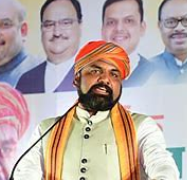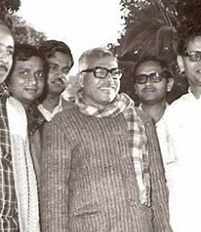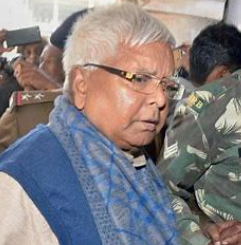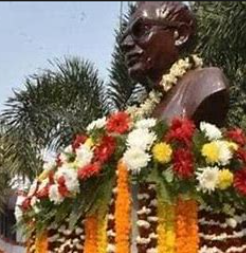The birth centenary celebrations of former Bihar Chief Minister Karpoori Thakur have sparked a heated controversy in Patna, intensifying the ongoing political tensions in the state. The event, which was meant to honor the legacy of the late leader, has become a focal point for conflicting narratives and power struggles within Bihar’s political landscape. The Opposition BJP and the ruling Janata Dal (United) are in a fierce dispute over the use of Miller High School for the birth anniversary celebrations of Karpoori Thakur. Thakur, a former Chief Minister from the Extremely Backward Classes (EBC) community, is remembered for his advocacy for the backward classes.

Bihar BJP chief Samrat Choudhary has criticized the State government for allocating the ground, initially reserved for the BJP’s event on January 24, to the JD(U). He labeled this move as a violation of democratic principles and an act of hooliganism. Choudhary warned that if the BJP is not given the reserved ground, they would shift their entire program to Beerchand Patel Marg and celebrate Thakur’s birth anniversary in front of the JD(U) and the Rashtriya Janata Dal (RJD) offices.
Both the ruling and Opposition parties are vying for the support of the EBCs in Bihar, a crucial demographic in the formation of the government. The latest caste survey revealed that the EBC is the most populous community in Bihar, followed by Scheduled Castes (SCs) and Other Backward Classes (OBCs). With the 2024 Lok Sabha elections approaching, the ruling party is keen to focus on this segment to gain an electoral edge.
Former Bihar CM’s Remembered

The JD(U) is commemorating the birth anniversary of the socialist stalwart, fondly known as Jannayak or people’s leader, on a grand scale across Bihar. On January 24, the JD(U) is organizing a rally at Patna’s Veterinary College ground, with arrangements for party workers to stay overnight at the Miller High School ground. On the same day, their alliance partner, the RJD, is celebrating his birth centenary at Sri Krishna Memorial Hall in Patna.
In Bihar, the birth centenary celebrations of former Chief Minister Karpoori Thakur have sparked a political storm. Thakur, revered for his dedication to social justice and uplifting marginalized communities in the 1970s, has left a lasting impact on Bihar’s history. However, his legacy has also drawn criticism, leading to a divergence in viewpoints that has fueled the ongoing dispute.
Karpoori Thakur, a revered figure from Bihar, served twice as the state’s Chief Minister. He is celebrated for his commitment to social justice, introducing policies to uplift marginalized communities and implementing a 26% reservation for backward castes. Fondly known as Jannayak, Thakur’s legacy continues to influence Bihar’s political landscape, despite facing criticism. His role in shaping Bihar’s history and his impact on social justice are undeniable.
A Call for Fairness
During a press conference at the Miller High School ground, Choudhary questioned the government’s actions, stating that such behavior after 18 years of rule is unfortunate. He claimed that the JD(U) has been influenced by the RJD, leading to such actions. Choudhary also alleged that if there was any leader who opposed the late Thakur, it was Mr. Kumar. He accused Mr. Lalu Prasad of hijacking Thakur’s legacy for personal advancement rather than promoting his ideology.
Choudhary further stated that the BJP had applied for the reservation of the ground on November 1, 2023, and received a No Objection Certificate (NOC). The Education Department had directed the District Magistrate Patna to vacate the ground and reserve it for the BJP. Despite these developments, the JD(U) has refused to vacate the field. Choudhary reiterated his request for the JD(U) to respect democracy and not indulge in hooliganism.
Bihar’s Controversy Unveiled
The row over the birth centenary celebrations of Karpoori Thakur is a complex tapestry of historical legacy, political maneuvering, and human perspectives. As the situation continues to evolve, it’s crucial to engage with these different dimensions and understand the diverse viewpoints that shape this contentious issue. Only then can we truly grasp the broader implications of this controversy for Bihar’s political landscape.











